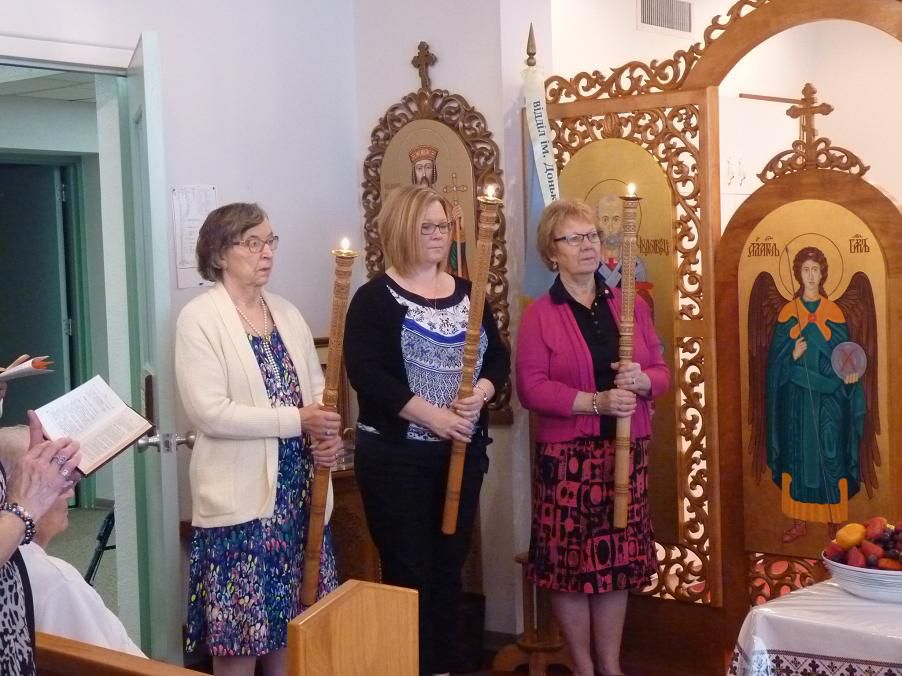
“My Life for Thine”
All life is based on the principle “my life for thine”.
The natural world shows us that plants give up their lives so animals might live, insects give up their lives to feed birds or bats, domestic animals give their lives that humans might be nourished.
Human society is no different. Parents sacrifice their lives, figuratively and sometimes even literally, for their children. Children give their lives for their parents. Soldiers offer their lives for their country. Indeed, without sacrificing our lives for each other in the opportunities, both great and small, which are presented to us daily, there simply would be no human society, no family, no life.
“My life for thine” – this is, as well, the principle of all spiritual life. Our Lord teaches us that “unless a grain of wheat dies and is buried in the ground it does not bring forth fruit” (Jn. 12:24).
A physical manifestation of this truth is the literal grain of wheat that must die so that I might have my toast or cereal in the morning. A spiritual manifestation would be the crowns bestowed upon a couple at their wedding. These crowns symbolize the crowns of the martyrs, who are the paradigmatic Christians – those who give their life for Christ. The husband and wife are symbolically shown that the married state involves nothing less than sacrificing one’s life for one’s spouse. Unless selfishness and egoism die Christian marriage cannot grow and blossom.
Priests are called to give their lives for the faithful. As our Lord says, “the good shepherd gives his life for the sheep” (Jn. 10:11). Before ordination bishops and priests agree to serve wherever they are assigned, which often means leaving family, friends, and familiar surroundings. They understand that their job is a “24/7” proposition, that they are always on call, and that as fathers they are obliged to take responsibility for their flock before God, living the same sacrificial life a good “biological” father would live for his children.
Lay ministers and Church leaders are no different. Holding a position of responsibility in the Church – whether pastoral or administrative – means giving of our time, our energy, our loving care, our patience, longsuffering, talents, etc. The parish council member, the lay minister visiting the sick and shut-in, the Sunday school teacher, the person working in a mission serving the poor and homeless are all living examples of “my life for thine”.
All our self-made problems, whether social, financial, ecclesial or spiritual, can be traced back to someone, somewhere, who refuses to take responsibility for others, to actually put the words “my life for thine” into practice. Pastors who desire the privileges and honour of their priestly office while shunning their God-given responsibilities are a good example. Parish council members or leaders of lay organizations who wish to dictate without actually doing is another. Parishioners who want access to a beautiful temple with beautiful services and the comfort of good pastoral care but are unwilling to sacrifice their fair share of time, work, or money are guilty as well.
Christ’s great law of love tells us that we must love God with our whole heart, our whole soul, our whole mind, and all our strength (i.e., with our material possessions), and love our neighbour as ourself (Mk. 12: 30-31). We are immediately struck by the fact that our concentration, our “preoccupation”, is to be directed outward, toward God and neighbour, not inward, to the self. In other words, “my life for thine”.
This is the teaching of Christ. This is the example of our Lord. This is the message of the Cross. If we call ourselves Christians this must be our own personal example. Every time we make the sign of the Cross we must remember this teaching.
“My life for thine”. We are reading these words because our forebears – both spiritual and biological – lived these words. If we truly wish to pass on our faith to our children and our neighbours we have no choice but to do the same.
